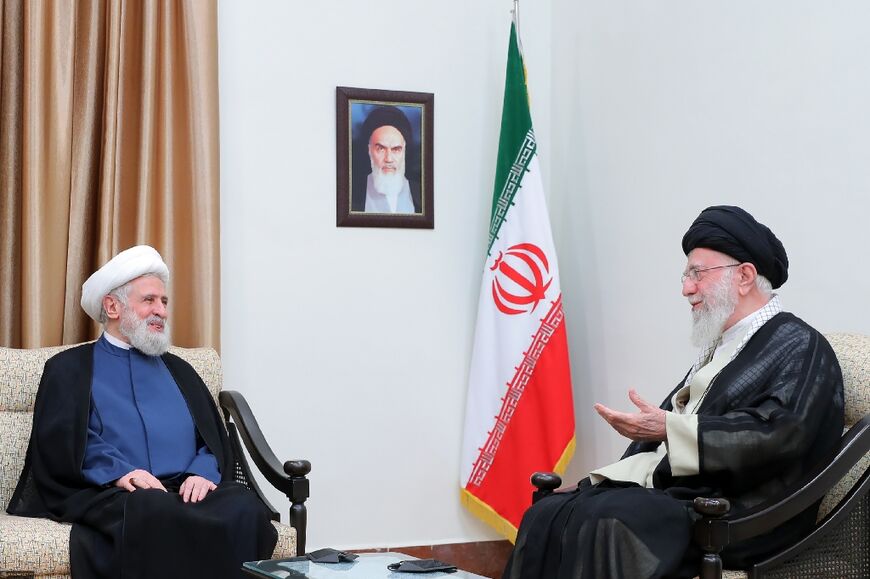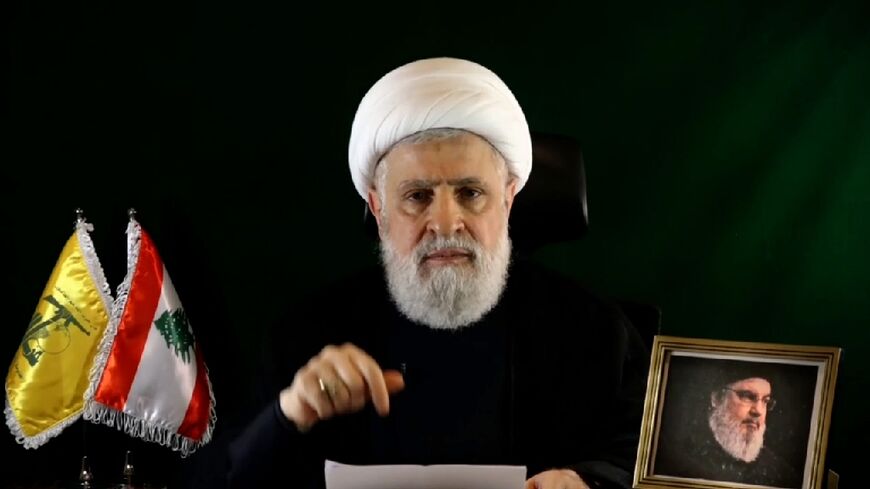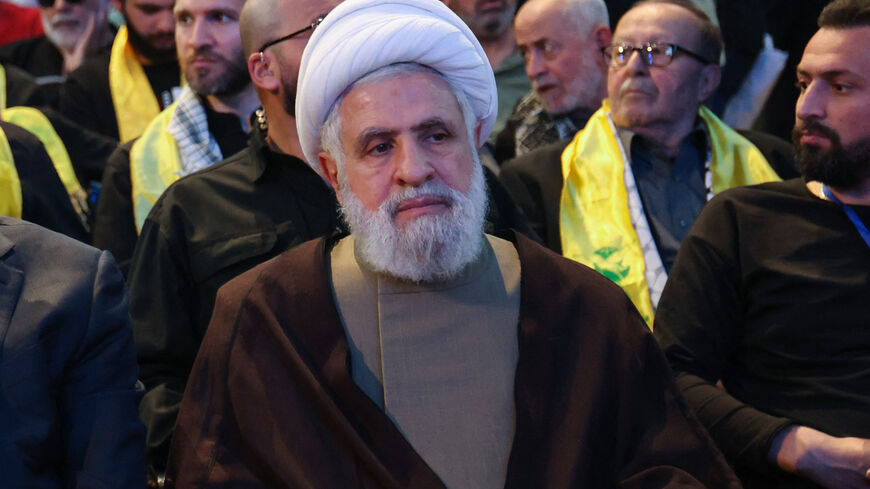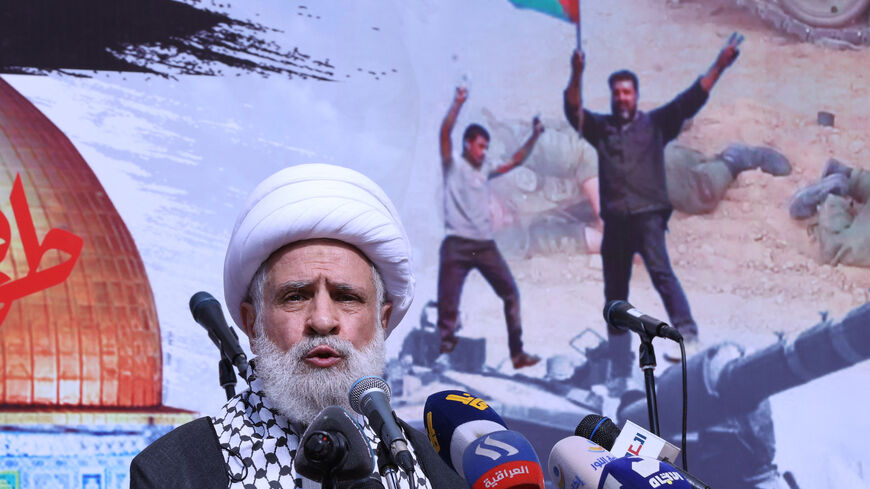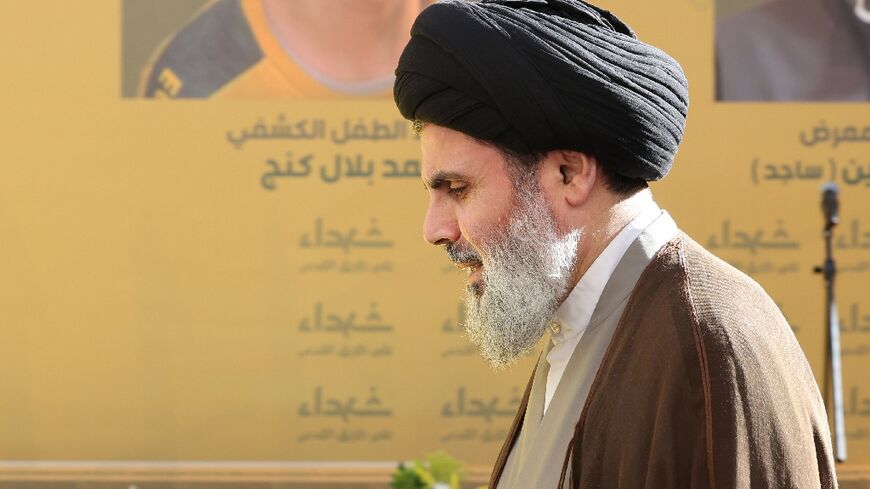Naim Qassem, Hezbollah veteran long in slain predecessor's shadow
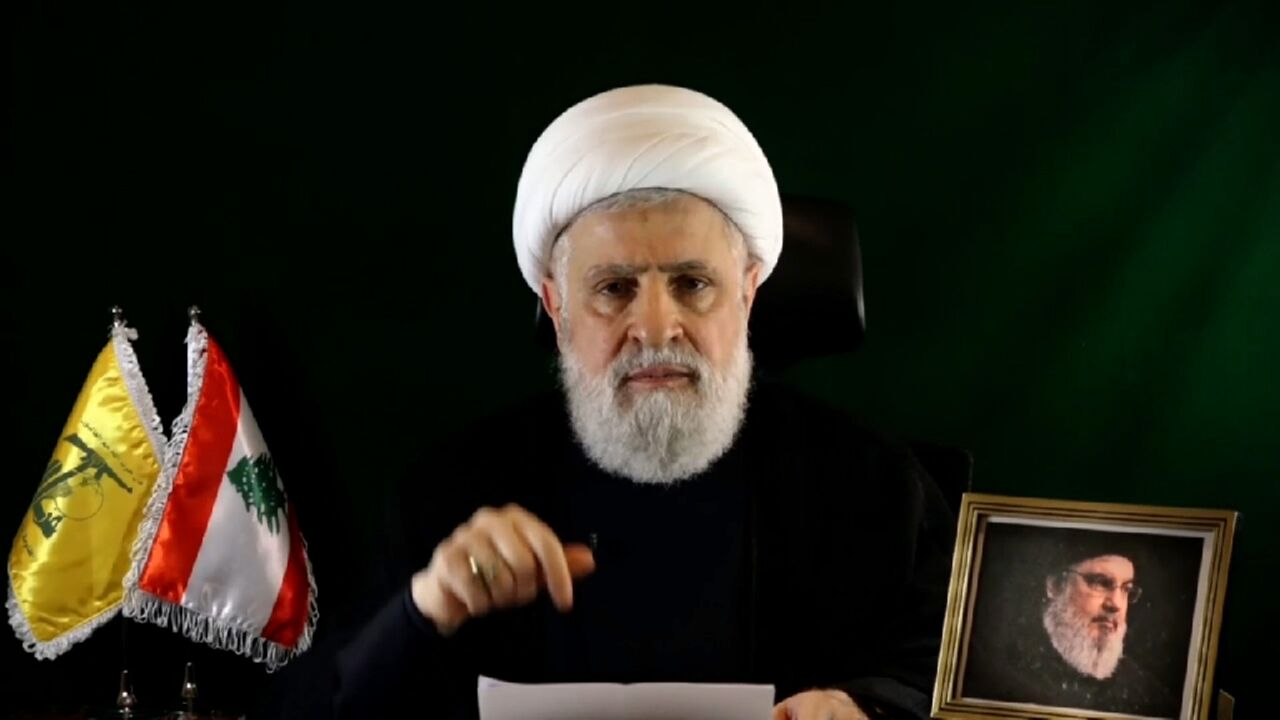
Naim Qassem, 71, was one of Hezbollah's founders in 1982 and had been the party's deputy secretary general since 1991, before being thrust into the top job by Israel's killing of Hassan Nasrallah.
Qassem, a member of the group's governing Shura Council, had long operated in the shadow of Nasrallah, a towering leader who was one of the most enigmatic and influential figures in the Middle East.
He was named as Hezbollah's new leader on Tuesday, more than a month after Nasrallah's killing in a huge Israeli strike in Beirut's southern suburbs.
Hezbollah said Qassem was elected by the Shura Council as it pledged to keep "the flame of resistance burning" until victory is achieved against Israel.
He was born in Beirut in 1953 to a family from the village of Kfar Fila on the border with Israel.
Qassem's political career began with the Amal Movement, a Hezbollah ally.
He left Amal in 1979 on the heels of the Islamic revolution in Iran which was a precursor to the formation of Hezbollah three years later.
He was appointed deputy secretary general under Hezbollah's then secretary general Abbas al-Musawi, who was killed by an Israeli helicopter attack in 1992.
He remained in the role when Nasrallah became leader.
Qassem was not initially tipped to succeed Nasrallah.
Hashem Safieddine, the head of Hezbollah's executive council, was believed to be in line for the top post.
But he too was killed in an Israeli strike on Beirut's southern suburbs shortly after Nasrallah's assassination.
- Public figure -
Qassem wears the white turban of a Shiite Muslim religious cleric and has a white beard.
He was the most senior Hezbollah official to make public appearances after Nasrallah largely went into hiding following the group's 2006 war with Israel.
Qassem has regularly appeared in public and frequently held interviews with foreign media outlets.
Just days before Nasrallah's assassination, he gave a defiant speech at the funeral of a slain Hezbollah commander in Beirut's southern suburbs.
Since Nasrallah's death in a huge Israeli air strike in the area on September 27, Qassem has made three televised addresses, speaking in more formal Arabic than the colloquial Lebanese favoured by his predecessor.
In his first speech after Nasrallah´s killing, he appeared stressed, sweating profusely, in a dark-lit room with wooden panels in the background.
With less charisma and fewer oratorical skillsthan Nasrallah, Qassem said the group would soon replace its assassinated leader.
In later speeches, he claimed Hezbollah's military capabilities were intact and backed efforts by parliament speaker Nabih Berri to broker a ceasefire.
Married with six children, Qassem studied and taught chemistry in Lebanon before turning to politics.
Qassem has published a number of books on religious, cultural and political issues, according to biographical details on his website.
He speaks English and was charged with overseeing Hezbollah's participation in government and parliament.
"He is kind-hearted, very affectionate and a brilliant thinker," said one of his acquaintances who requested anonymity.
"He has the ability to convince others," he said.
